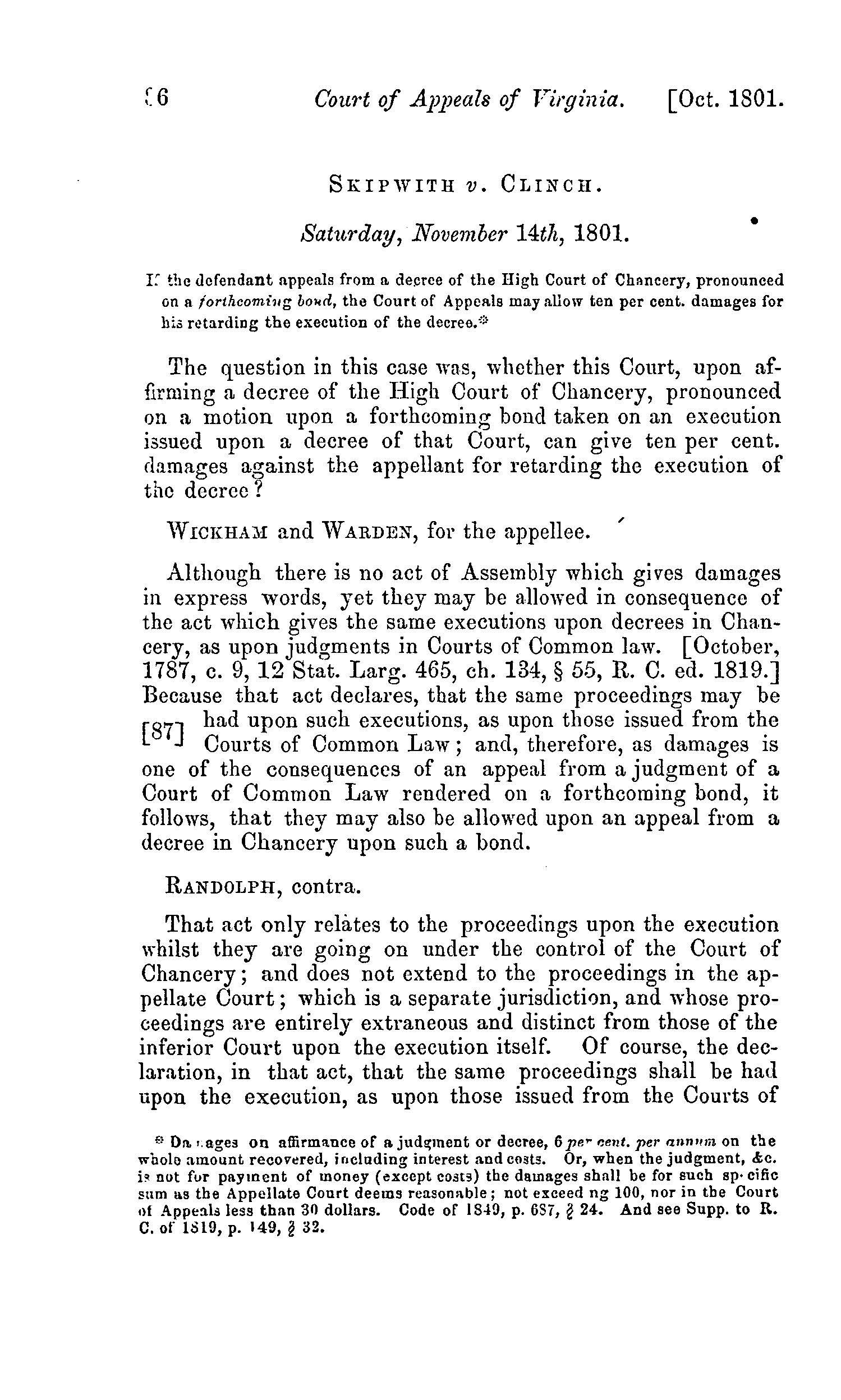Difference between revisions of "Skipwith v. Clinch (1801)"
m |
m (→See also) |
||
| Line 10: | Line 10: | ||
==See also== | ==See also== | ||
| + | *''[[Skipwith v. Clinch (1800)]]'' | ||
*[[Wythe's Judicial Career]] | *[[Wythe's Judicial Career]] | ||
Latest revision as of 14:37, 7 September 2018

Skipwith v. Clinch, 7 Va. (3 Call) 76 (1801),[1] was a derivative action of Skipwith v. Clinch (1800), where the court determined whether the defendant's appeal to the Court of Appeals was an unnecessary delay in executing his judgment and entitled the plaintiffs to damages.
Background
This suit was a derivative claim made after the decree in Skipwith v. Clinch. In this case, Clinch, on behalf of the Holt family, countersued in the Court of appeals stating that Skipwith only appealed Wythe’s decision to delay execution of the decree against him. Clinch supported his allegation by pointing to the fact Skipwith did not object while in the Court of Chancery, nor did he show any error in the record upon his appeal. Clinch requested that the Court grant the Holt family an additional 10% in punitive damages for delaying the execution of the Wythe’s decree.
The Court's Decision
The Court of Appeals agreed with Clinch and granted damages.
See also
References
- ↑ Daniel Call, Reports of Cases Argued and Adjudged in the Court of Appeals in Virginia, 3rd ed., ed. Lucian Minor (Richmond, VA: A. Morris, 1854), 3:76. George Wythe owned the first edition of this set.